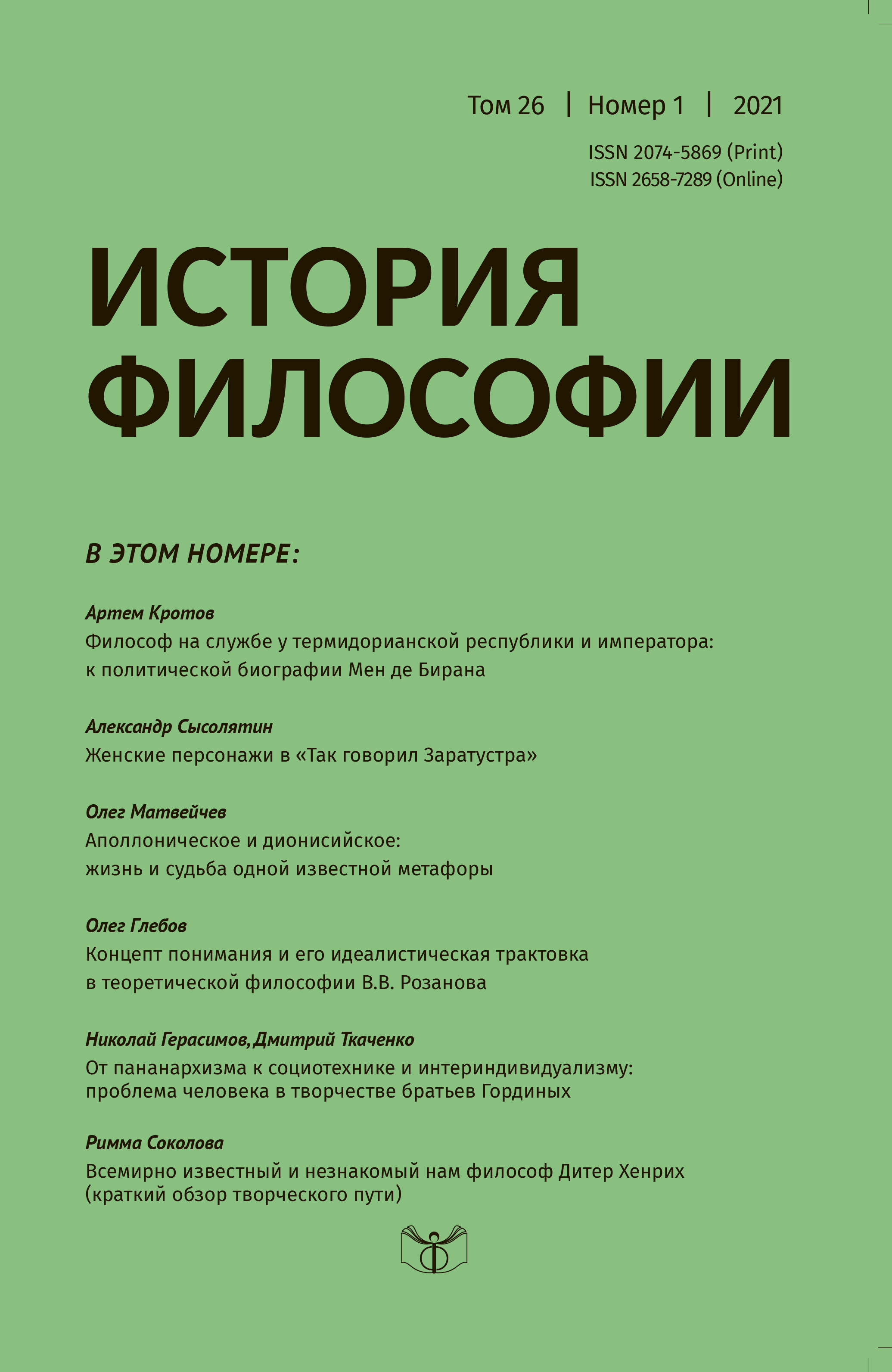The Worldwide Famous and Unknown to Us Philosopher Dieter Henrich (a brief Overview of His Creative Path)
Keywords:
self-awareness, subjectivity, thinking, being, man, integrity, “I”, life, “last questions”, insightAbstract
The review briefly examines the main milestones of the creative path of the outstanding German philosopher Dieter Henrich (b. 1927), who in Germany is considered the greatest thinker of the post-war period, along with H.G. Gadamer and Yu. Habermas. Henrich is not only a deep researcher of German classical philosophy, but also the creator of his own original theory on the problem of subjectivity. This review pays special attention to this problem. Henrich had a great influence on many fields of knowledge – sociology, psychology, literary studies, and others. His works have been translated into many languages around the world; in July 2020, an international colloquium dedicated specifically to his work was held in Bielefeld. However, in Russia, due to historical and socio-political reasons, Henrich was almost unknown to the Russian reader. Only in 2018, one of his books, “Thinking and Self-Existence”, was published in Russian. In addition to this book, the review also mentions major works of recent years – “Being and Nothing” (2016), “This is Me and this is all said. Reflections on Fichte’s Insight" (2019). They develop the ideas contained in many of his previous works, but also present a new argument that presents the problem under study from an unexpected, sometimes opposite side. The purpose of this review is to introduce the reader to this philosopher and to arouse interest in further research of his work.

